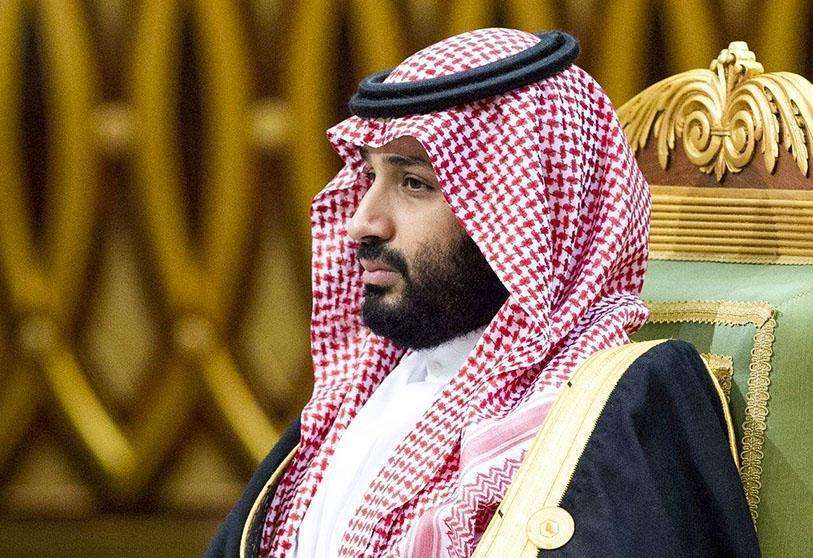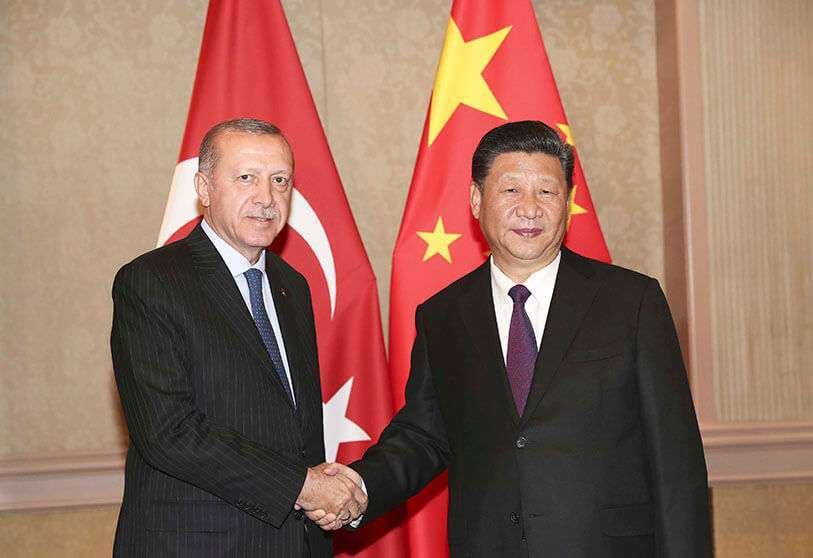China takes up positions in the Persian Gulf

Formal contacts in Tashkent between Chinese Foreign Minister Wang Yi and his Saudi counterpart Prince Faisal bin Farhan, just over a month after the Western debacle in Afghanistan, were the prelude to the Sino-Arab summit in Ningxia Hui last August, and deserve more attention than they have received. The meeting, part of an ambitious Chinese diplomatic tour of the region that includes Turkey, Iran, the United Arab Emirates, Bahrain, and Oman, also comes at a time when relations between Riyadh and Washington could be better, and when the civil war in Syria has already turned into a confrontation between Iran and Israel, which Saudi Arabia has abandoned to focus on the Yemeni hornet's nest, a conflict that continues to drain the Kingdom's resources at a time when oil revenues have been significantly reduced.
Not surprisingly, Crown Prince Mohammed Bin Salman's priorities include strengthening strategic relations with China, based on opposition to interference in their respective internal affairs. Unlike the US, China does not need to provide ethical justifications for domestic consumption in order to sell arms to third countries, because it is indifferent to how the countries it deals with govern themselves, but it is particularly zealous in safeguarding its national sovereignty, security and social stability.
This is welcomed in countries whose political frameworks differ from those of the West, and perceive speeches under the banner of human rights and democratic values as external interference. Agreeing on this, reaching comprehensive strategic commitments with China on security and stability compatible with the House of Saud's Vision 2030 is almost a mere formality. So much so that official Chinese media have reported that China attaches great importance to its comprehensive and stable strategic partnership with its new Arab friends, with whom it has agreed to support the Green Saudi Arabia and Green Middle East initiatives, strengthening its cooperation in energy, investment and finance for Saudi Arabia to achieve a diversified economy.

More broadly, Chinese Foreign Minister Wang proposed a five-point initiative to achieve peace and stability in the Middle East, calling for China to play a leading role in promoting long-term peace and stability in the region through a set of initiatives in which the Gulf Cooperation Council will play a central role, negotiating a free trade agreement with China, which opens the door to closer and deeper collaboration on hydrocarbons, new energy supplies, overland trade corridors, as well as technology transfer, including military technology. This is particularly interesting for Saudi Arabia's desire to achieve strategic sovereignty, allocating at least 50 per cent of military spending to domestic production and developing a home-grown war industry. The lucrative commercial opportunity that the likelihood of the Biden administration proceeding to cancel or limit arms sales to Saudi Arabia has not gone unnoticed in China, knowing that Riyadh ranks first among global arms importers, representing a market share of 12%, with the US and the UK accounting for 73% and 13% respectively of total arms procurement to Riyadh.
China has demonstrated not only commercial agility, but also a remarkable shrewdness for variable geometry diplomacy that is currently lacking in the United States, which 20 years after 9/11 continues to be in a daze. Beijing's advantage over Washington is that, as Wang Yi's manoeuvres confirm, it is capable of reaching agreements with antithetical and even hostile actors. In this way, China gives Turkey and the Gulf states the opportunity to lessen their dependence on the US, while offering Iran material support to counter Western sanctions. All this while the Gulf monarchies confront Erdoğan's strategic advances in territories that were once part of the Ottoman Empire, and Iran maintains a standoff with Saudi Arabia in Yemen. This suggests that Chinese diplomatic calculations include facilitating a degree of reconciliation between Ankara and Riyadh, which both the agreement for Saudi arms companies to manufacture Turkish drones under licence and the rapprochement between Doha and Riyadh demonstrate is possible. Especially if the view that they sottovoce admit that the war in Yemen is already lost becomes prevalent and Bin Salman chooses to limit his losses, as the UAE did in 2019.

This would certainly be the preferred option for China, which makes the absence of conflict a critical element in its strategy for establishing its economic presence, the same reason why it is working to convince Turkey to join the Shanghai Cooperation Organisation along with a group of Central Asian countries, and to launch the six-nation platform referred to in a previous article. In any case, China's diplomatic approach, articulated by its foreign minister Wang Yi through the expression - whether it is sincere and enduring remains to be seen - of a persuasive rather than a comminative attitude, offers its new partners in the region a differentiated dialectic of power, which, far from causing outright rejection, seems to be outlining the new map of alliances in both the Middle East and Central Asia.

